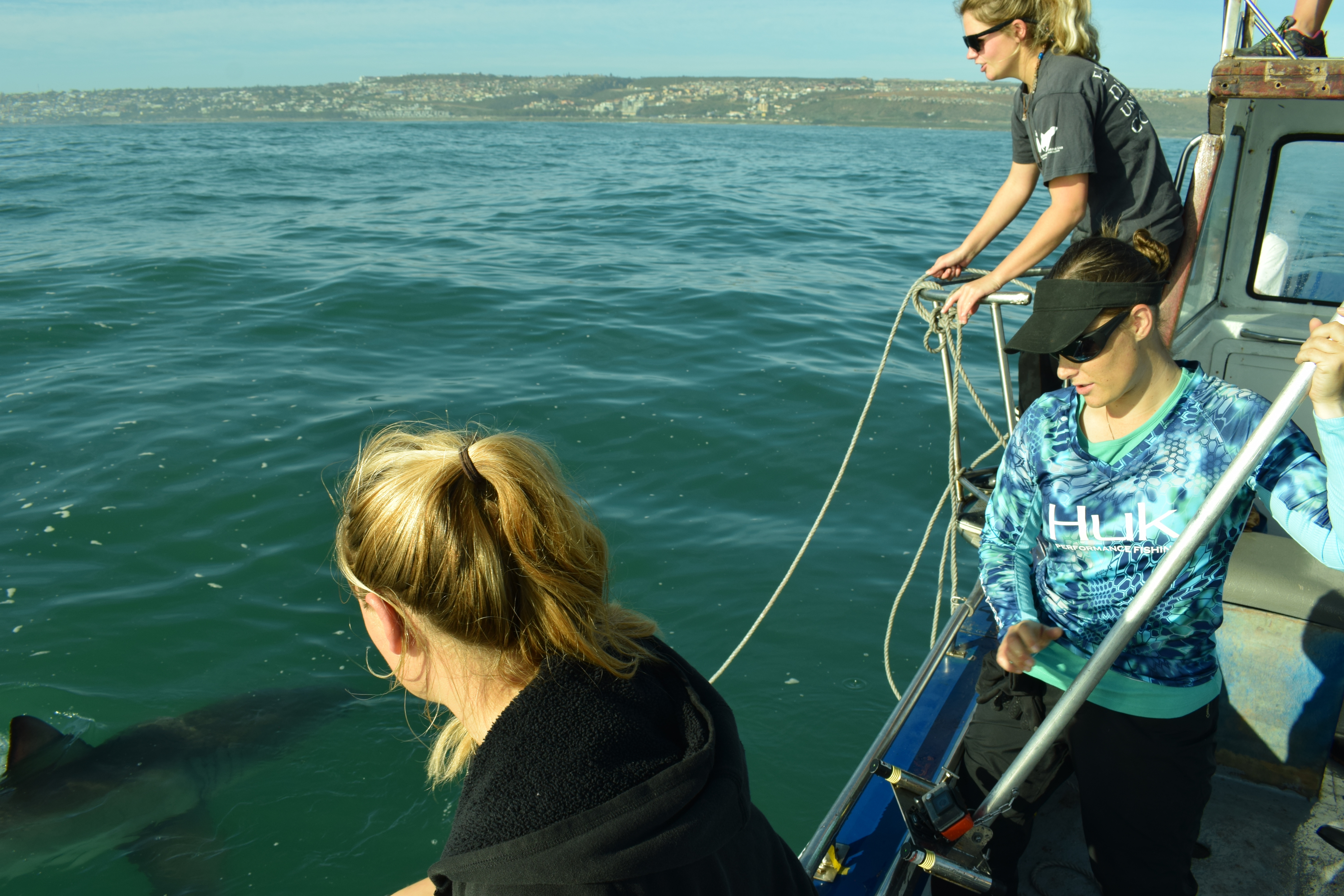
Interview with Erin Slattery, Marine Conservation Student
Posted by Esther Jacobs on April 18, 2018
Read our interview with Nelson Mandela University marine conservation student, Erin Slattery. Erin spent a year with Oceans Research as an intern and field specialist, and here’s what she has to say about her experience…
Why did you choose to study conservation?
I have always been passionate about animals and the environment. I particularly love the sea and have always been fascinated with the creatures who live in it. Since I was a child, being outdoors and in nature was always a top priority for me. I always knew that a career that involved working behind a desk in an office was never going to be an option. I believe that I chose well and have never regretted my decision to study conservation.
What has been your favourite project to get involved with in this last year?
I particularly enjoyed the invertebrate intertidal surveys and exploring the rock pools. I also liked the days when I was able to go out to sea on the research boat. Spending time around white sharks and observing their nature first hand was particularly inspiring.
What will you miss the most about working with Oceans Research?
I will miss the Oceans Research team who I worked with and got to know during the year. I will miss the fact that no two days were ever the same and I will miss all the adventures I had and the different projects I got to work on.
Has your experience with Oceans Research prepared you for your future career?
Yes, definitely. Being able to put the theory into practice has been an invaluable experience. I also learnt how to function well within a team and also how to interact with people at all levels. I matured and grew in so many ways throughout the year and now feel ready, and excited, to take on a permanent position in the industry. I am sure that having worked at Oceans Research will open doors for me and may lead to future job opportunities.
Do you think internships are important for those who want to go into a career in Biology?
Yes. It is an opportunity to learn how to put the theory already learnt into practice by getting vital hands-on experience. During this period one gains knowledge, skills and experience. It gives you a more realistic idea of what it is going to be like to work in your chosen field and teaches you the necessary discipline of working each day.
What was your biggest challenge this year?
I would say that working outdoors and being out at sea during extreme weather conditions was the most challenging for me. Also, as most of the international interns visited Oceans Research for a short period of time (there was a new group each month), having to say goodbye and start preparing for a new group of people each month was difficult.
What field would you prefer to go into now, science or conservation?
I would like to continue working in marine conservation and/or coastal ecology. Applying science and research to conservation projects is what I would like to be able to achieve in the near future.
You also got involved with the Keep Fin Alive ocean conservation campaign. Was the experience useful?
This was an extremely useful experience. It was a fun way of conveying a very important environmental message to young, impressionable children. We need to preserve marine species and ecosystems for the future generations and educating them in this manner was very rewarding.
What was your favourite aspect of working with the campaign?
A very proud moment was winning the Water World award at Scifest in Grahamstown for Best Stall. It felt good to be recognised for our efforts and it was totally unexpected.
Do you think the talks to kids through Keep Fin Alive’s educational events inspired action?
Yes, during the year we reached 1000’s of children. Besides doing our “Plastics Pollution” presentation to many large school groups at South Africa’s biggest science festival in Grahamstown, we visited many preschools and primary schools during the year, and performed fun and educational puppet shows on the beach during school holidays. We would definitely have left the children with a greater understanding of the challenges being faced and they learnt what part they can play in protecting the oceans. I believe we made an ongoing difference.
Do you have any advice for anyone keen to study conservation?
Don’t sit behind your books, go out and get your hands dirty! Get involved, ask many questions and don’t stop learning.